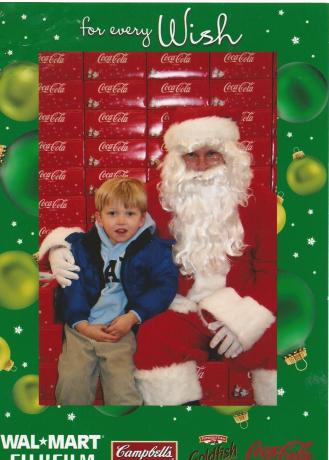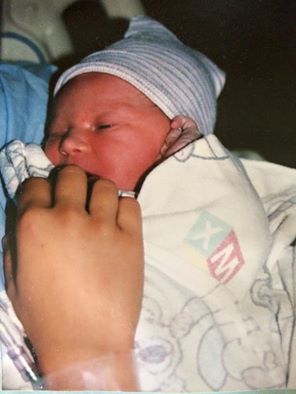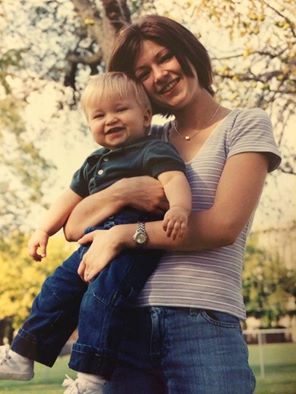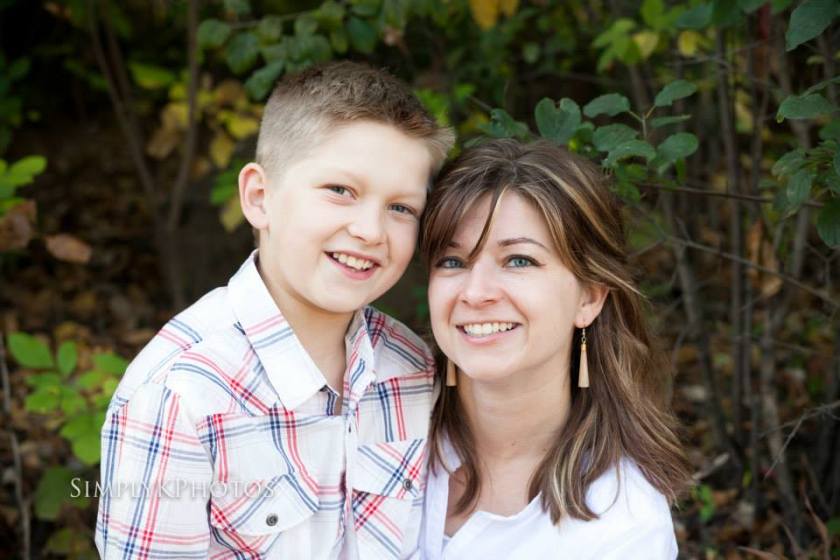
Back in April, Steve, W, J, and I had a pow-wow in our living room. Steve wasn’t on board with the idea (he’s the one who loves our kids being little and doesn’t want them to grow up). I’m always the one who wants them to grow up (maybe it’s because of J and his delays; I have that extra push for my kids to be on their own and to ‘get things’). I had decided we were going to tell them the truth about the Easter bunny. After all, J was almost done his first year of middle school and W (even though she’s almost a full year younger than other kids in her grade) was headed there in August. I assumed most kids by middle school knew the truth about the Easter bunny, and I didn’t want either of them to feel embarrassed or risk the chance that our kids would be made fun of for still believing.
My track record for trying to explain the mysteries of life hasn’t been great so far. One time, while picking W up afterschool, W asked me what sex was. Totally taken off-guard, and keeping my eyes on the road, I proceeded to explain sex to her. I explained how the anatomical parts (with their proper names) interacted with each other in very basic terms. I checked the rear view mirror a few times to gauge how it was going and it didn’t look like it was going well. She looked horrified. I quickly threw in the intimacy part in there, and how it really is enjoyable (even if it didn’t sound like it) and that it’s a way two people show that they love each other, but I could tell by her face that she didn’t believe me.
I’ve had follow-up conversations with W about sex (mostly to clarify or soften the information bomb I dropped on her). I always think I’m ready to do these things, but then I start talking and then realize I’m not.
That Easter morning, I dropped the Easter bunny bomb. Without any preface, or any softening (because like I said, I’m finding I’m no good at this) I said, “W, J, there’s no such thing as the Easter bunny, right?”
I couldn’t read J’s face at all. W’s face went through all sorts of emotions. First to confusion, more confusion, and then came the soft sobs. And then came the follow up question—the question I wasn’t prepared for. I was already questioning my success in speaking the Easter bunny truth, but you could see the wheels turning and W all of the sudden looked at me.
“So does this mean Santa’s not real too?”
Steve gave me the look of “see, I told you this was a bad idea.” Since I didn’t know or want to answer this one (I could tell I was crushing her heart—if you know W she’s the sweetest, gentlest, most innocent, I-love-my-childhood kid), I decided to stall by asking J.
“J, do you think Santa’s real?”
Without a beat, he said with 100% surety, “No. Santa’s not real.”
Definitely not what I had expected.
J’s not good about talking about himself or expressing his inner thoughts. Understanding his own emotions and thought processes is hard. His answer floored me. I just assumed he still believed because that’s what we told him and he believes and does whatever we ask of him (because all of his life he’s relied on other people to interpret or explain the world to him. He just doesn’t pick up on those things because of his autism). I had made assumptions about his thoughts and feelings without ever asking him—without even trying to get him to understand his own thoughts and feelings. Unfortunately, I hate to admit, I do that a lot.
Now that Christmas is here, I think about how often J has to just comply with things. Believe things we tell him. Buy the rationale we give him. I’m sure he has questions, doubts, concerns, but since he can’t articulate them, he ends up just goes along with it. I think back to the times when he was a toddler, trying to plant him on Santa’s lap for a good picture. One that we could stick in our photo album because at that time, I was already grieving the fact that my child wasn’t like other people’s children and I just wanted to that moment—that picture everyone else had. J wasn’t even interested in toys, at least not in the way other kids were interested in toys (a typical marker of autism). J refused to even wait in line. He had no real interest in Santa at all. Because I wanted to have that normal rite of passage—even a screaming child on Santa’s lap– we worked on it.
I strategized with his preschool teacher how to go about it. We talked about social stories. Finally we were able to get J to wait in a line (even though he was always on the verge of a meltdown) and to sit on his lap and at least say “hello.” It’s silly really—I’m sure he saw right through it the whole time. The stranger in a fake beard. The coming down the chimney business. But he did it, because we told him it was important. Even if he didn’t understand why.
It makes me wonder what else J rolls with just because he knows he’s supposed to but doesn’t buy into at the same time. This whole Santa thing has given me a totally different perspective. I am his mother, and it’s my job to explain the world to him, but I need to remember too how to let him see it in the way he needs to as well so he can carve his own place into it.
We do this all the time. How many other people (autistic or not) have to comply with a world constructed by a majority? Even things that don’t make sense sometimes. I know J sees the double standard when strangers expect him to look them in the eye and engage in small talk—but when we go through the checkout line in the grocery store, he sees that same stranger talking on their cell phone, totally ignoring the cashier—no eye contact at all. Sometimes I think we are all stuck in our little autistic worlds, thinking everyone sees the world the same way we do. The only difference is, we don’t have a bunch of adults reconditioning us to live the norm.
This Christmas season has been different. The kids know about Santa (W did end up forgiving us for lying to her) and their Christmas hasn’t been ruined. In fact, they’re having just as much fun as they always have. I’m not going to lie. Not have to be sneaking around about Santa has been pretty awesome. It’s a hundred times less stressful. The other day J and I saw a Christmas ornament for Fred, and I said we could buy it and put it in his stocking. J was pretty excited for that.
This week the kids have their choir concerts. W has her piano concert. The busyness of the season is here, but even with the countdowns and the disruptive schedules, things that always stress him out, J has told me several times he’s excited for Christmas. He’s starting to figure out Christmas in the way he needs to. And it’s pretty awesome.


